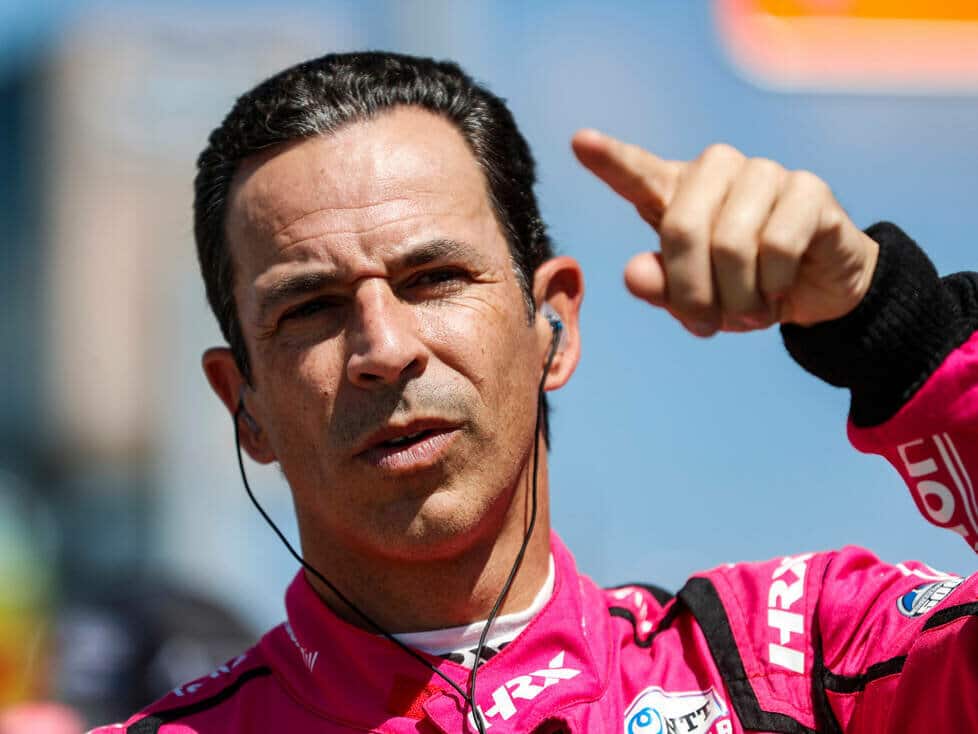NASCAR has adjusted numerous rules for the 2025 season – Thanks to a change, Helio Castroneves is sure to take part in the Daytona 500.
NASCAR is tweaking the rules for the 2025 Cup season, which begins with the legendary Daytona 500 in Florida on February 16. Thanks to an adjustment, IndyCar and endurance racing ace Helio Castroneves no longer has to qualify for the starting field via qualifying or the duels, as the 49-year-old is already guaranteed a spot in the race. There are also other changes to the sporting regulations.
Castroneves is allowed to participate in the Daytona 500 thanks to the “Open Exemption Provisional”. This rule allows “world-class drivers to participate in NASCAR Cup races” without having to take the qualifying hurdle. 36 vehicles are equipped with charter contracts and thus have a guaranteed starting place in all races. The maximum number is 40 vehicles, so that teams will have to drop out early if more than 40 cars are registered.
The Brazilian doesn’t have to worry about a starting place, because NASCAR will apply the exception rule for him if necessary. He would be the 41st car in the field, so he wouldn’t take a starting place away from another team. If he makes use of the exception rule, he would receive no points and no prize money, according to NASCAR. Should he win, the second-placed driver would receive the points for victory, but not the bonus playoff points. The other drivers would also move up one place in the standings.
Castroneves can also qualify through the sporting quota, in which case he will receive prize money and points. The new regulations only apply if he makes use of the exemption. Which drivers would still benefit from a waiver depends on the individual case. In the past, Kimi Räikkönen, Jenson Button and Kamui Kobayashi would certainly have been candidates. Full-time NASCAR drivers are not eligible for the waiver, which must be requested 90 days before the race.
Repairs to the car during the race
NASCAR introduced the damaged vehicle policy in recent years. This involved a clock that ticked down when a car had to be repaired after an accident in the race. If the teams did not manage to get the car back on the track within the time to reach the minimum speed, they were automatically disqualified. This rule has been fundamentally changed.
Previously, any car that needed to be towed was immediately out of the race. However, the fact that the next-gen cars were stranded with a flat tire and unable to continue caused great resentment in the paddock and among fans. From 2025, cars that have been towed may rejoin the race. While the teams are trying to repair the car in the pit lane, the clock continues to run, but a car is not immediately taken out of the race at the end of the time. After the time limit has expired, the teams have to continue the repair in the garage.
Playoff waiver for retirements
Actually, only drivers who have driven all the races get a playoff spot, but in recent years there have been repeated cases in which drivers had to miss a race. NASCAR then made an exception in individual cases and still allowed the driver into the playoffs via waiver. This rule was also changed in advance of the 2025 season.
For example, Kyle Larson missed the race at Charlotte because he was competing in the Indy 500. NASCAR now punishes drivers if they do not compete – but not for health reasons, not even within the family. If a driver like Larson misses a race and is still admitted to the playoffs, he loses all the playoff points he has accumulated. In the event of illness, injury, the birth of a child or other exceptional circumstances, the driver retains his points.
Penalties for race manipulation
The 2025 Martinsville race caused a stir because Chevrolet helped William Byron and his fellow Chevrolet drivers created a blockade of sorts to keep Christopher Bell behind Byron. Bell used a wall ride that has been banned since Ross Chastain’s maneuver. Byron made the final, Bell was punished, but these decisions had a bitter aftertaste because Chevrolet intervened in the race.
If a manufacturer is caught, NASCAR can dock them points, reduce wind tunnel time, and even limit RCDF simulations. There is also the 100 percent rule, which states that all drivers must perform at 100 percent of their ability at all times.
Furthermore, NASCAR allows the suspension of bans imposed for technical violations without appeal. Previously, an appeal had to be lodged before a ban could be suspended. All other bans take effect immediately.





